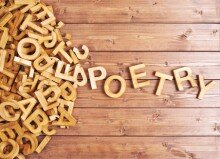
Bojan Radašinović was born in Zagreb. He has had a number of jobs, working as a literary critic for magazines, a journalist, a DJ, a farmer, a salesman, an assistant technician, and a volunteer with non-governmental organizations. Currently he works as a teacher with preschool children, and he is the computer mentor for the Society For Gifted Children.
So far Radašinović has had two books of poetry published: Sprega književnosti i prljavog rublja (Bond Of Literature With Dirty Laundry), for which he received the annual Goran Prize For Young Poets in 2000, and Ovdje ćemo uvijek biti stranci (We Will Always Be Strangers Here), published in 2003, from which a selection of poems is presented in this issue. He says that without his consent – “Nobody asked me!” – some of his poems were translated and published in Slovenia, and he also claims that he is happily in love, again.
Radašinović’s poetry represents a kind of lyrical journal that he uses to describe and to communicate everyday situations and ordinary conundrums. In his lyrical narration he conveys the range of problems facing the new generation in countries undergoing economic and political transition – not just in this part of Europe but elsewhere too.
His hero is unemployed or between jobs, meeting friends in cafés and bars to discuss the eternal local question: whether to stay or whether to try their luck in some foreign country in the west. These poems are straightforward, easy to read, and they cut deep into the questions surrounding love, solitude, longing, lifestyle and the rest of the predicament we usually call living.
Radašinović is aware that every drama, every commotion starts from the inside, and it cannot be resolved only there. A certain exit is needed, someone we can connect with, but then we could find ourselves in some other, quite strange circumstances. In the end his need to stay emerges first and foremost as a basic need for the language, which envelops him entirely and covers all the strata of his being, emotions and thoughts.
Bojan Radašinović certainly represents one of the most interesting new voices in Croatian poetry. “An alchemy of the transformation of everydayness into something extraordinary represents the formula employed by Radašinović spontaneously, and with that device his poetry gains a profound human quality that we could label as a ‘democratic emotionality’, if it is at all appropriate to put together in a single phrase a political term and a human emotion,” said his editor from the Croatian publishing house AGM.
Bibliography
Poetry
In Croatian
Sprega književnosti i prljavog rublja, SKUD I. G. Kovačić, Zagreb 2000.
Ovdje ćemo uvijek biti stranci, AGM, Zagreb 2003.
Savršeno mjesto za život, AGM, Zagreb, forthcoming, autumn 2005.






